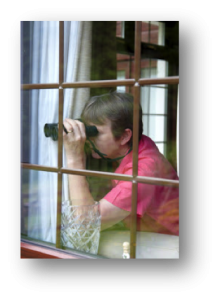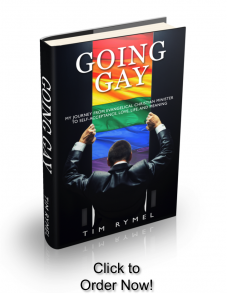What will the neighbors think?
 The first time I ever ventured into the gay community I was working as a substitute teacher at an Evangelical Christian school. I had recently left the Republican Party, because they were too liberal. California’s now infamous Proposition 8 was all the talk among the gay men with whom I was dining. I’d voted yes, against gay marriage. It’s no wonder when I left that night that I didn’t exactly feel like I found my people. In fact, it was a year before I would come back.
The first time I ever ventured into the gay community I was working as a substitute teacher at an Evangelical Christian school. I had recently left the Republican Party, because they were too liberal. California’s now infamous Proposition 8 was all the talk among the gay men with whom I was dining. I’d voted yes, against gay marriage. It’s no wonder when I left that night that I didn’t exactly feel like I found my people. In fact, it was a year before I would come back.
Most of my life was spent trying to figure out where I fit in. I was frequently the only white guy in black churches when I was a musician. My, now, middle of the road politics are too liberal for the conservatives and too conservative for the liberals. I’m too gay for some Christians and too Christian for some gays. It’s always something.
For many years I hid pieces of my life from at least someone, significant or otherwise. I wondered what they – my community, family, friends, co-workers – would think of me if I shared my real life with them. I didn’t want to lose the perceived security by risking it. Besides, my life felt insecure enough as it was. If they didn’t accept me, who would?
When I finally got to the place that risk was less risky than the shame that consumed me, I took the risk. And I found out what the neighbors really thought. Here are a few of their opinions:
“Finally! Someone is willing to say what I’ve been thinking.”
“I’m so glad I’m not alone.”
“You are brave and you inspire me.”
“I’ve never felt closer to you.”
“Can I tell you what’s going on with me?”
“Me, too!”
We don’t find our true communities until we find our true selves and are willing to share our lives and imperfections with the people around us. Until then, we are nurturing a community to which we don’t belong. When I got real, not only did I find my community, I lost interest in what anyone else thought. It no longer mattered.
I learned that honesty breeds security, while dishonesty nurtures perception. Perception builds walls around us that keep people away and leave us locked up in a prison of our own insincerity. Though virtual, no one can penetrate the barrier of our making. The only way through comes from the inside.
Our culture has built a system of competition among neighbors. Who has the most stuff? Who has the best family? Cultural Christianity adds another layer by asking, Who is the most godly? Whose life is most perfect? Neither represents real life that is complex, confusing and, at times, crushing. The next time you ask, “What will the neighbor’s think?” Remember they are probably thinking, I wish I knew someone who could relate to what I’m going through.
Perhaps that’s you.
Tim
Please share your thoughts below.
Hire Tim to speak at your event
 Tags: authenticity, Christian and gays, christian living, homosexuality, LGBT, Parents, PFLAG
Tags: authenticity, Christian and gays, christian living, homosexuality, LGBT, Parents, PFLAGDel.icio.us


TweetThis

Digg

StumbleUpon

Comments: 0 (Zero), Be the first to leave a reply!You might be interested in this:
 Believing is Perceiving
Believing is Perceiving  Keeping Up Appearances
Keeping Up Appearances Be Ye Transformed
Be Ye Transformed Why I Don't Talk About Scriptures
Why I Don't Talk About Scriptures Can You Show Compassion without Compromise?Copyright © Tim Rymel [What will the neighbors think?], All Right Reserved. 2014.
Can You Show Compassion without Compromise?Copyright © Tim Rymel [What will the neighbors think?], All Right Reserved. 2014.The post What will the neighbors think? appeared first on Tim Rymel.




